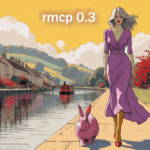AI job search – Disrupting the Recruitment Status Quo: How jobstr.work and LLMs are Building the Future of Decentralised Job Searches
The traditional job search process “sucks” – it is characterised by closed platforms which creates a “recruitment shїtshow”. Don’t just take my words for that, try Indeed or Reed or LinkedIn! Same job listed multiple times… Remote, but different “location” jobstr.work is a real solution, working via a decentralised platform for listing jobs that combines […]









